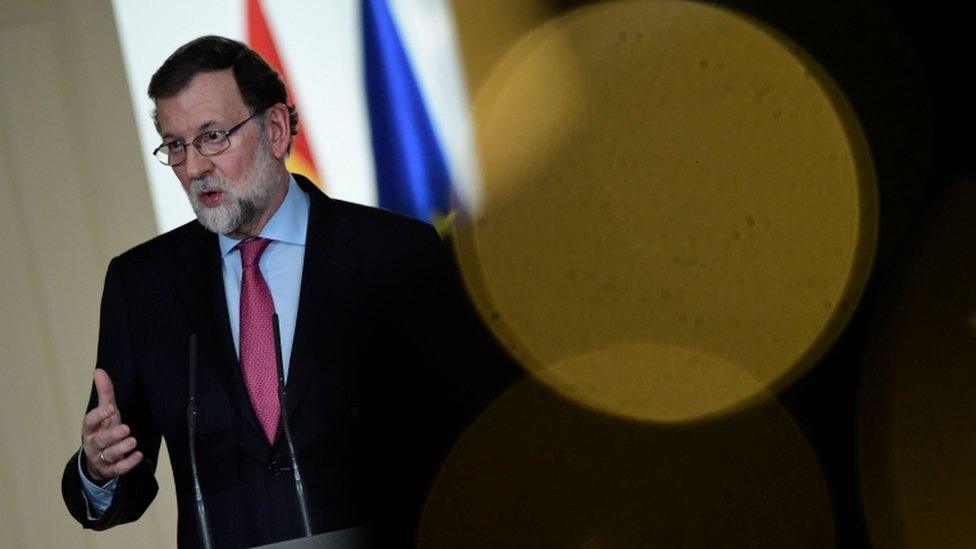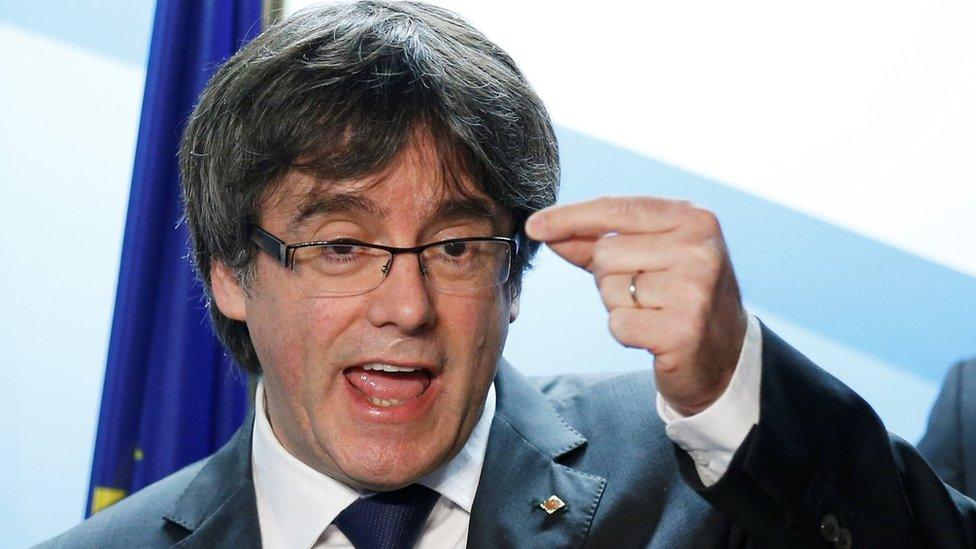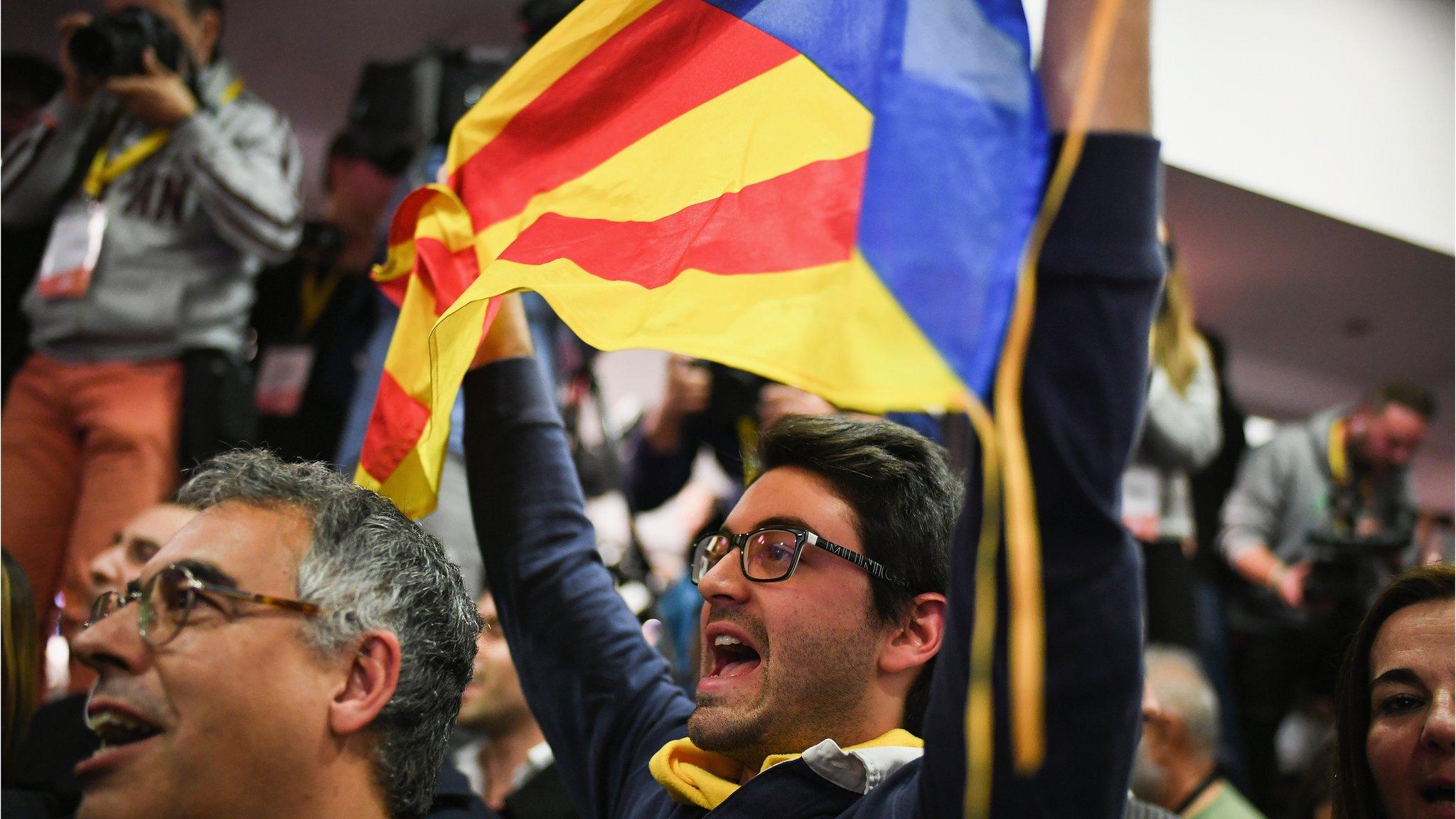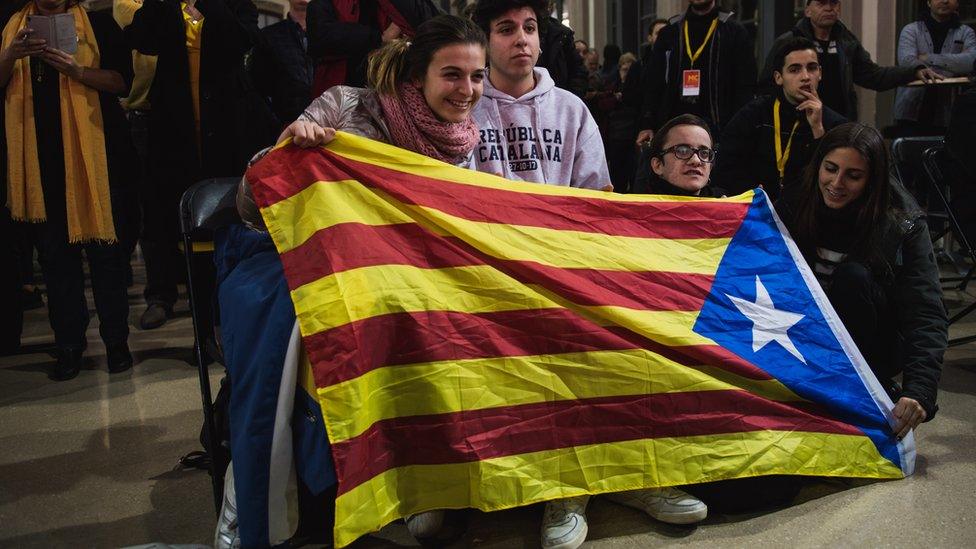Catalonia crisis: Spain PM Rajoy sets timeline for new parliament
- Published

PM Mariano Rajoy says he hopes Catalonia will have a government "as soon as possible"
Spain's prime minister says the new Catalan parliament should hold its first session on 17 January, ahead of reinstating the region's government.
Mariano Rajoy's announcement comes a week after Catalonia's separatist parties won back a majority in a divisive snap election.
He called the vote in a bid to quash a bid for independence by the region's leaders and end the political crisis.
Analysts say it could take months for a new Catalan government to be formed.
"I hope that as soon as possible we will be able to have a Catalan government that is open to dialogue and able to relate to all Catalans, not just half of them," Mr Rajoy said in an end-of-year address to the nation on Friday.
He reiterated that a vote to select a new Catalan president must take place within 10 days of the new regional parliament convening.
Read more
Although the unionist Citizens party (Ciudadanos) had the biggest share of the vote in the 21 December ballot, three separatist groupings headed by ousted Catalan President Carles Puigdemont retained their parliamentary majority.
However, the parties favouring a split with Spain may struggle to form a government.
'Absurd'
Mr Puigdemont is currently in self-imposed exile in Belgium, as he faces arrest in Spain over his role in Catalonia's unilateral declaration of independence. Another separatist leader, Oriol Junqueras, is in prison in Madrid.

Carles Puigdemont is calling for talks with the Spanish leadership
Following the independence declaration in November, Mr Rajoy sacked Catalonia's government, dissolved its parliament and stripped the region of its autonomy.
In his speech on Friday Mr Rajoy dismissed the idea that Mr Puigdemont, may try to lead a new government from abroad as "absurd".

No power to break stalemate
By James Badcock, BBC News, Madrid
Mariano Rajoy may have fixed the date for the region's newly elected parliament of Catalonia to convene, but he cannot create a workable majority in the chamber for any candidate of his liking.
Direct rule under Article 155 of Spain's constitution will cease automatically once a new president of Catalonia takes office. But with pro-unity parties falling short of a majority and pro-independence ranks riddled with gaps - eight MPs are either in Belgium or in Spanish jails - there is no clear way ahead.
Mr Rajoy is playing his standard straight bat based on the rule of law while refusing to negotiate any alternative with ousted Catalan leader Carles Puigdemont.
Pro-independence forces plan to keep their majority grip on parliament's speaker's committee, from where they could try to bend the rules to allow Mr Puigdemont to take office from abroad with votes from substitute MPs for those unable to attend the session.
The next phase of Catalonia's stand-off is only just beginning.
- Published22 December 2017

- Published14 October 2019
